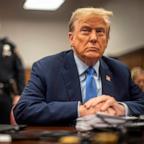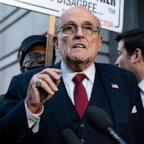The 'Bikini Principle' and Airport Security
March 21, 2006 — -- Last Friday, the news broke that 21 U.S. airport screening checkpoints had failed to detect test packages of chemicals and other materials that could be used to make an improvised explosive device.
To the credit of just about everyone, the public response has been metered and thoughtful, but there is no denying that the news sent a shudder running through all of us who fly and raised a worrisome question: In the quest to make sure the number of flying terrorists is zero, is our new airport security system effective or not?
Well, first a quick history, if you please.
Before Sept. 11, 2001, airport security screening in the United States was somewhere between a fraud and a very sick joke. Administered by a motley crew of poorly educated people, many of whom could not even functionally speak American English, screenings were performed by minimum wage workers who spent their time harassing legitimate travelers while doing next to nothing to stop dangerous items -- let alone dangerous people. So poor were the systems and rules used by the bottom-feeding contractors who ran the security checkpoints, that getting 19 mass murderers through such illusory barriers with lethal box cutters on Sept. 11 proved the easiest part of the enemy's task.
It's important to remember this harsh truth when we take the measure of any perceived failure by today's new federal force of airport screeners. In short, even though the system isn't perfect, we've come light years, and today we actually have a professional screening system with the ability and the intelligence to correct itself when needed.
'The Bikini Principle'
Although no one in Washington routinely uses the term "Bikini Principle" in public comments, it essentially describes our overall aviation defense philosophy: When you provide strategic coverage of the most important vulnerabilities, you've already won most of the battle.
None of the legislators or experts who helped create the Transportation Security Administration expected the new screening force to be a 100 percent perfect barrier against a would-be terrorist or murderer slipping through and onto a commercial jet with some sort of lethal weapon. Instead, the goal was realistic: Construct a screening system that provides substantial assurance to would-be hijackers or other terrorists that the chances for successfully slipping through with a weapon or a bomb are far too slim to justify the attempt. As I've pointed out before in this forum, the 9/11 criminals who attacked us worked hard for years to keep their chances of success at somewhere above 90 percent. But now, such assurance of success have been utterly destroyed by the post-9/11 changes made in the system.




